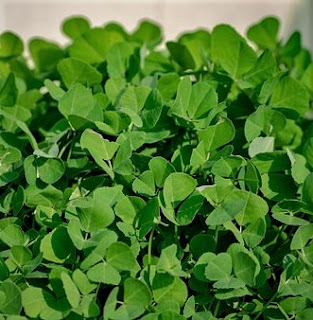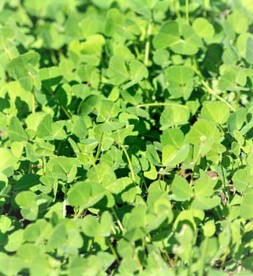Tips For Using Fenugreek leaves and the Health Benefits of Fenugreek leaves:
.png) |
Fenugreek leaves |
Fenugreek leaves:
Fenugreek leaves, also known as methi leaves, are a popular ingredient and staple in Indian, Pakistani, and Asian cuisine. They have a unique flavor, and slightly bitter taste and are often used in curries, dals, and vegetables and they have many health benefits. They are rich in vitamins and minerals and have been used for medicinal purposes for centuries. In addition to their delicious flavor, fenugreek leaves are also known for their health benefits. In this article, we will discuss some tips for using and cooking with fenugreek leaves for health.
Tips for Using Fenugreek Leaves:
Fenugreek leaves have a strong, unique flavor that can be overpowering if too much is used. when you take fenugreek leaves you can start with a small amount and add more to taste.
1. Choosing and Storing fenugreek leaves:
When buying fenugreek leaves, look for leaves that are fresh and green. Avoid leaves that are yellow or wilted. To store fenugreek leaves, wrap them in a damp cloth and place them in the refrigerator. fenugreek leaves will stay fresh for up to 7 days or a week.
Fenugreek leaves should be stored in an airtight container in the refrigerator. Fenugreek leaves will stay fresh for about 7 days. If you have a lot of fenugreek leaves, you can also freeze them. To freeze fenugreek leaves, wash and dry them thoroughly, then place them in an airtight freezer bag and store them in the freezer.
2. Cooking with fenugreek leaves:
Fenugreek leaves can be used in a variety of dishes, including curries, soups, and dals. They can also be used to add flavor to vegetables, such as potatoes, carrots, and okra. Fenugreek leaves are often used in curries, stews, and many other dishes in India, Pakistan, and Asian countries cuisine. Fenugreek leaves can also be used to make a delicious, garnish or to make a healthy chutney.
 |
Fenugreek leaves |
Another popular dish that uses fenugreek leaves is methi dal, which is a lentil dish made with fenugreek leaves and spices. To make this dish, sauté the fenugreek leaves in oil with some spices, such as cumin, before adding the lentils and water. Cook until the lentils are soft and the dish has a thick, stew-like consistency.
Fenugreek leaves can also be used in a variety of bread and parathas. They can be mixed with flour to make methi parathas or mixed with dough to make methi naan. They are also commonly used as a topping for naan bread. To use fenugreek leaves in cooking, rinse them thoroughly and chop them finely. They can be added to the dish at the beginning of cooking or as a garnish before serving.
3. Preparing fenugreek leaves:
Before using fenugreek leaves, wash them thoroughly to remove any dirt or debris. Chop fenugreek leaves or tear the leaves into small pieces. You can use Fenugreek leaves for both fresh or dried. when using fenugreek leaves in a dish, it is best to add them towards the end of the cooking process so that they retain their flavor and color.
Fresh fenugreek leaves are more flavorful, but dried fenugreek leaves can also be used. If using dried fenugreek leaves, they should be soaked in water for a few minutes before using them in your recipes. To reduce the strong flavor of fenugreek leaves, you can blanch them in boiling water before using them in a dish.
 |
Fenugreek leaves |
Health Benefits of Fenugreek Leaves:
Fenugreek leaves are rich in vitamins and minerals, including vitamin A, vitamin C, vitamin K, iron, potassium, and calcium. Fenugreek Leaves also offer a range of health benefits, including being a good source of vitamins and minerals, and high in fiber, fenugreek Leaves also contain antioxidants that can help to protect our body from damage and this damage is caused by free radicals. they can also be used to help promote healthy skin and hair, as they are rich in vitamins and minerals that are essential for maintaining healthy skin and hair.
Fenugreek leaves have been used for medicinal purposes for centuries. They are believed to have anti-inflammatory properties and can be used to help reduce the symptoms of conditions such as arthritis and asthma. They are also believed to help lower blood sugar levels and can be used to help manage diabetes.
In addition, fenugreek leaves have been shown to have anti-inflammatory properties, which may help with conditions such as rheumatoid arthritis and asthma.
1. Fenugreek leaves for hair growth:
Fenugreek leaves can also be used and beneficial for hair care and hair health. They contain protein and nicotinic acid, which can help to strengthen hair and prevent hair loss.
To use fenugreek leaves for hair care, grind them into a fine paste and apply it to the hair and scalp. after applying the fenugreek leaves paste you can Leave it on the scalp for 30 minutes and then wash it off with shampoo. You can be done this process once or two times a week for better results.
.jpg) |
Fenugreek dry leaves |
2. Drying Fenugreek Leaves:
Fenugreek leaves can also be dried for future use. To dry them, spread the leaves out on a clean, dry surface and let them sit for a few days until they are completely dry. They can then be stored in an airtight container for later use. Dried fenugreek leaves can be used in the same way as fresh leaves, but they will have a stronger flavor.
3. Fenugreek Leaves for Digestion:
Fenugreek leaves can also aid in digestion by reducing acidity and bloating. To use fenugreek leaves for digestion, steep a handful of leaves in hot water for 10 minutes. Drink this tea before meals to promote better digestion. Fenugreek leaves are also high in fiber, it is also believed to help promote healthy digestion and weight management. fenugreek leaves can be used to help relieve constipation.
4. Fenugreek Leaves for Lactation:
Fenugreek leaves are a galactagogue, meaning it is also believed to help increase milk production and increase milk supply in breastfeeding mothers. It contains diosgenin which has been found to have a positive effect on lactation. Fenugreek leaves can be consumed in the form of tea or supplements. It is important and also recommended to take fenugreek leaves supplements under the guidance of a doctor.
5. Fenugreek Leaves for Diabetes:
Fenugreek leaves have been found to have blood sugar-lowering effects. Studies have shown that fenugreek leaves can improve glucose tolerance and reduce blood sugar levels in people with diabetes. To use fenugreek leaves for diabetes, steep a handful of leaves in hot water for 10 minutes and drink the tea before meals.
 |
Fenugreek leaves |
6. Fenugreek Leaves for Weight Loss:
Fenugreek leaves may also aid in weight loss. They are high in fiber and can help to reduce appetite and promote feelings of fullness. To use fenugreek leaves for weight loss, add them to curries, stews, and dals, or steep a handful of leaves in hot water for tea before meals.
Fenugreek leaves can also be used for hair growth and increasing milk supply in breastfeeding mothers. It is very important before taking any fenugreek leaves supplements to consult with your doctor. With these tips, you can easily incorporate fenugreek leaves into your cooking and enjoy the many benefits they have to offer.
In conclusion, fenugreek leaves are a versatile and delicious ingredient that can be used in a variety of dishes. fenugreek leaves are used for both culinary and medicinal purposes. They can add flavor to dishes, help with hair and digestion, lactation, and even diabetes and weight loss. As with any new addition to your diet, it is always best to consult a doctor before adding fenugreek leaves to your daily routine. It is important to note that Fenugreek leaves are safe when consumed in moderate amounts, but excessive consumption may cause certain side effects such as diarrhea, gas, and stomach discomfort.
.png)



.png)
.png)



No comments:
Post a Comment
Please do not enter any spam link in the comment box.